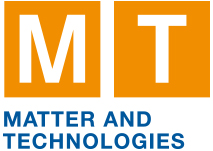Speaker
Description
The Compressed Baryonic Matter (CBM) experiment at the upcoming Facility for Antiproton and Ion Research (FAIR) aims to explore nuclear matter at extreme baryon densities. To achieve event rates of up to 10⁷ per second for rare probes, it relies on fast, radiation-hard detectors, self-triggered front-ends, free-streaming readout, and online reconstruction. Its main tracking detector, the Silicon Tracking System (STS), is designed to reconstruct charged-particle trajectories with over 95% efficiency, a momentum resolution better than 2% for momenta above 1 GeV/c in a magnetic field, and to identify complex decay topologies. The STS consists of 876 double-sided silicon strip modules arranged in eight tracking stations.
A prototype of this detector, consisting of 12 modules arranged in three tracking stations, was installed in the mini-CBM demonstrator. This experimental setup is a small-scale precursor to the full CBM detector, comprising sub-units of all major CBM systems installed on the SIS18 beamline. In various beam campaigns taken between 2021 and 2024, heavy-ion collisions 1–2 AGeV with an average collision rate of 500 kHz have been recorded.
This allows for the evaluation of the operational performance of the STS detector, including time and position resolution, hit reconstruction efficiency, charge distribution, signal-to-noise ratio, and its potential for track and vertex reconstruction.
| Speed talk: | Normal speed talk selection |
|---|

